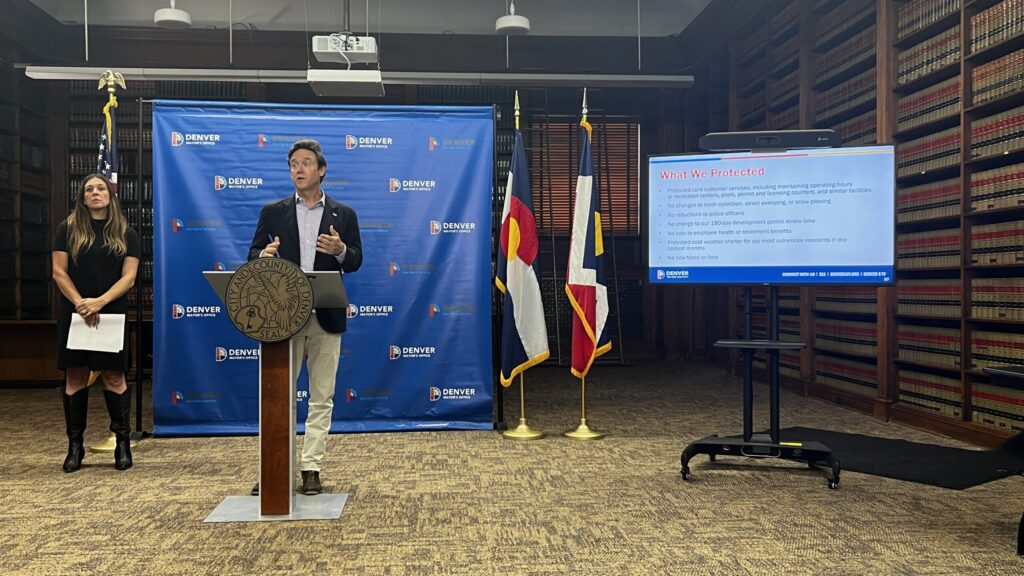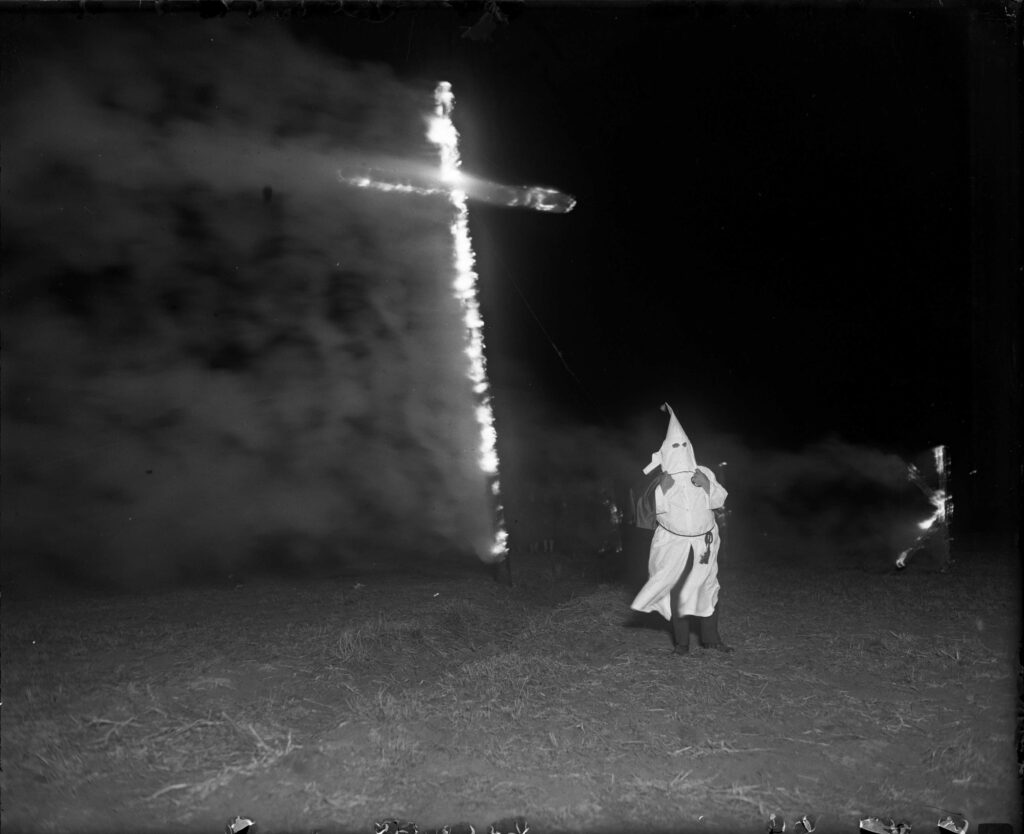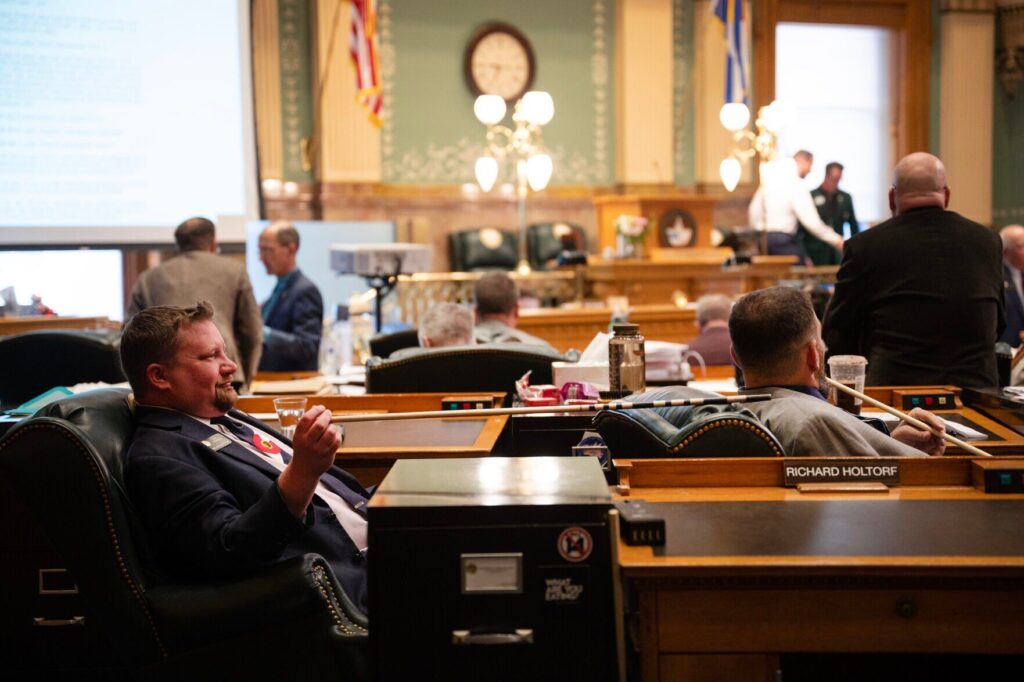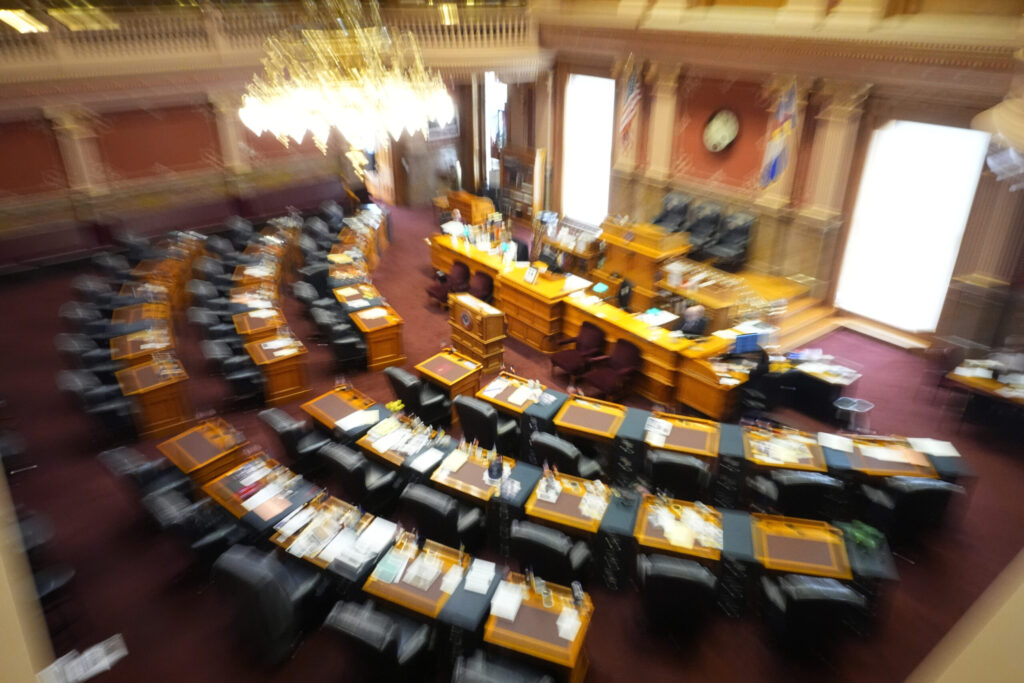House Republicans vote against bill continuing Civil Rights Division and Commission
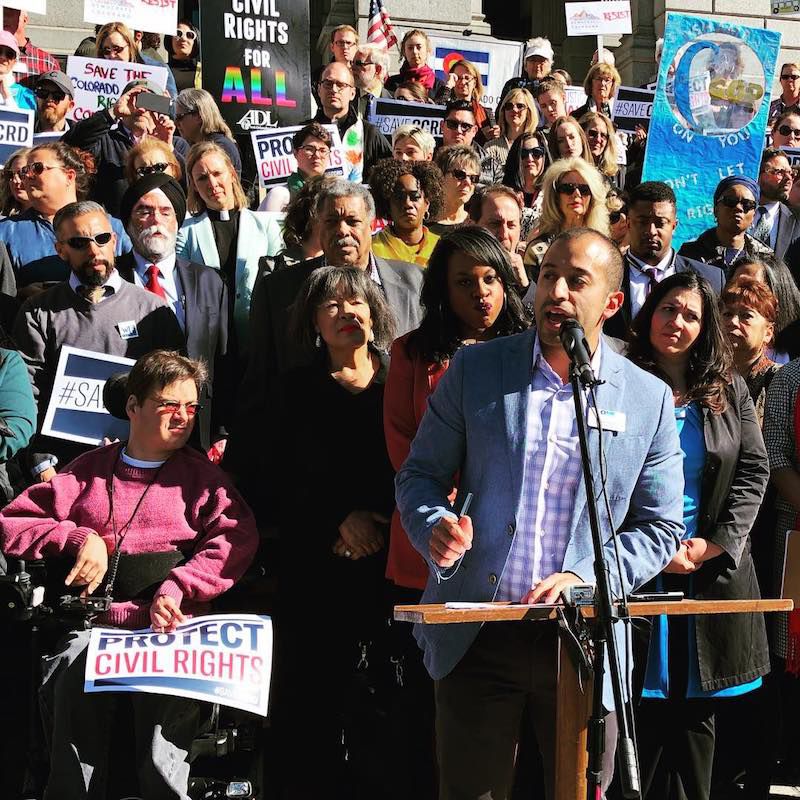
DENVER – All but two members of the Colorado House Republican caucus Wednesday voted against a bill to continue the Colorado Division of Civil Rights and Colorado Commission on Civil Rights.
The 36-26 vote, which drew only two Republican votes in favor, signals the real fight: when House Bill 1256 reaches the Republican-majority Senate, and all-but-assured Republican changes to the bill that House Democrats have so far rejected.
The two Republicans voting in favor of the bill: Assistant Minority Leader Cole Wist of Centennial and Rep. Dan Thurlow of Grand Junction. Wist supported the bill when it was reviewed by the House Judiciary Committee last week.
But other Republicans indicated that even if they supported the purpose of the agency, that support was conditional on approval of the changes they sought, both in committee and on the House floor. That was an argument they did not win.
On Tuesday Republican Rep. Terri Carver of Colorado Springs told the House she is “fully supportive of the commission continuing on, reauthorizing.” But she also advocated for an amendment that would change the commission’s appointment process, and she objected to its role as an appellate body without having lawyers or judges as the majority of appointments.
On Wednesday she voted against the continuation bill, along with fellow Republican and judiciary member Paul Lundeen of Monument, who also voted in favor of the bill in committee.
Lundeen said he would not vote for the bill as it would not move the agency forward “in the way it should.”
The civil rights agency is under what’s known as a “sunset review,” a periodic examination of a state agency or program that must be reauthorized. The bill approved by the House Judiciary Committee is a “clean” bill, which means it simply reauthorizes the agency for another nine years without any of the other recommendations included in the review conducted by the state Office of Policy, Research and Regulatory Reform.
The agency’s last review was nine years ago, and at that time the continuation bill received more votes in favor -14 – from House Republicans than against – 13. Among those voting in favor: now-Senate President Pro tem Jerry Sonnenberg of Sterling and current Sen. Bob Gardner of Colorado Springs, who sponsors this year’s continuation bill in the Senate. Voting against at the time: now-Sens. Randy Baumgardner of Hot Sulphur Springs, Kent Lambert of Colorado Springs and Kevin Priola of Henderson. In the Senate in 2009, the continuation bill garnered 30 out of 33 votes, with two senators absent.
By then, sexual orientation as a protected class was already the law, added in 2008 when both chambers were controlled by Democrats. The bill, Senate Bill 200, passed on a party-line vote in the Senate and on a 38-26 margin in the House – a party-line vote but for one Democrat: Rep. John Soper of Thornton, who voted against it.
But then Masterpiece Cakeshop happened.
In 2012 the civil rights commission sided with a same-sex couple who sued the Lakewood bakery and its owner, Jack Phillips, for refusing to make them a wedding cake. Phillips cited his religious beliefs in refusing them service, and they sued under the state’s public accommodation law, which requires that retail or wholesale companies that serve anyone must serve everyone, regardless of “disability, race, creed, color, sex, sexual orientation, marital status, national origin or ancestry.”
Conservatives have been up in arms over the case, claiming the commission shows an anti-religion bias, a claim reiterated by Justice Anthony Kennedy when the case went before the U.S. Supreme Court in December.
Rep. Stephen Humphery of Severance made that argument during Tuesday’s House debate when he attempted an amendment to House Bill 1256 that would have allowed discrimination based on “sincerely held religious beliefs.”
Humphrey is the prime sponsor of another measure, House Bill 1206, his fourth effort to change state law in favor of the free exercise of religion.
The bill will be heard by the House Judiciary Committee next week.
Its prime Senate sponsor is Sen. Kevin Lundberg of Berthoud, a member of the Joint Budget Committee and one of three Republicans who voted against continuation funding for the agency in the 2018-19 budget. Lundberg also has complained about anti-religious bias on the commission and strongly complained about the Supreme Court’s 2015 decision legalizing same-sex marriage.
Humphrey told the House “no true Christian would … ever discriminate as that term is understood against another human being.” But the addition of sexual orientation and gender identity language to state law has created a conflict in the law that leads to “more divisiveness and litigation over which category prevails,” he said. That amendment quickly died without debate.
It was the Republicans’ first effort Tuesday to change the commission that drew the most Democratic objection. Under the amendment, the commission’s seven members, currently all appointed by the governor, would be nominated by the governor, chief justice of the Colorado Supreme Court, speaker of the House and Senate president. It’s an appointment scheme also found with the Colorado Independent Ethics Commission, which also acts in a quasi-judicial role.
In addition, four of the seven would have to be either lawyers or retired judges. Currently, four of the seven must represent protected classes covered under civil rights laws. Under the amendment, members would also have to adhere to the state’s code of judicial conduct, which isn’t required of any other board or commission – not even the ethics commission.
Democratic Rep. Jovan Melton said the amendment would be a better fit for the “Deep South.”
Fellow Democratic Rep. Leslie Herod of Denver, one of the bill’s prime sponsors, called it “classist,” pointing out that Latinos and African-Americans make up a minuscule percentage of lawyers in Colorado. This would reserve commission membership “for the privileged few,” she argued.
On Wednesday, the House voted on the bill without debate.
Daniel Ramos, executive director of One Colorado, the state’s leading LGBTQ advocacy organization, said after the House vote Wednesday that it’s “now up to the Senate to follow the lead of their House counterparts, and pass a bipartisan, clean reauthorization of the Division and Commission. Some of the amendments we saw proposed would not ‘improve’ or ‘modernize’ the Division and Commission, but would weaken their ability to protect Coloradans’ civil rights. I implore Senate leadership to do the right thing, and pass a clean reauthorization of the Colorado Civil Rights Division and Commission.”
It now heads to the Senate, where the first real fight will be over whether the Republicans have the votes to make the changes they so badly want. Should the bill be amended, it would likely head to a conference committee to resolve differences between the House and Senate version, which could mean a late-session fight.
Funding for the civil rights agency is still slated to end on June 30, when the agency’s current authorization expires.
This week the Joint Budget Committee is wrapping up its final decisions on the 2018-19 state budget and could vote to finish its work as soon as Thursday.
The agency’s funding, at around $2 million, is not included.
JBC members have told Colorado Politics they have several options for the continuation funding, including using state funds that the JBC sets aside to cover bills moving through the legislative process.
But that “set aside” applies only to the state’s general fund dollars, not cash funds. The agency relies on about $500,000 in federal money, which is counted as cash funds, to cover the cost of investigations and complaints handled by the division that would otherwise be routed to the Equal Employment Opportunity Commission and U.S. Housing and Urban Development.
The 2018-19 state budget is scheduled to be introduced in the House on Monday.






